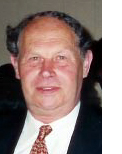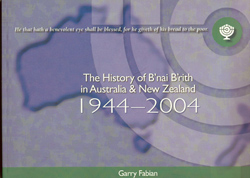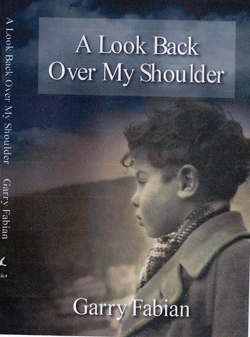Editor’s Note: San Diego Jewish World is fortunate to have among its contributors the authors of many books. To acquaint you with them, and their literary output, we will from time to time offer articles by the authors telling of their works. This article is by Garry Fabian, a Holocaust survivor who became active in B’nai B’rith in Australia.
By Garry Fabian

MELBOURNE, Australia — My first book was The History of B’nai B’rith in Australia & New Zealand, 1944 – 2004, which was an outgrowth of my own Jewish organizational activities. The introduction of the book provides a brief outline of the founding of B’nai B’rith in New York in 1843, its expansion across the ocean to Europe in the 1880’s and banning there in the late 1930’s when the Nazi regime came to power. The main story tells of how B’nai B’rith established itself on a new continent.
The majority of B’nai B’rith members across Europe perished in the Holocaust, but a handful managed to find safe havens in many corners of the world, including Australia. These were the lucky ones – they at least found physical safety, something denied to many of their brethren and sisters who were unable to leave Europe as the world closed its doors on the desperate and persecuted.
 Yet, life, however precious, was certainly not easy for these refugees. Their dislocation in language, customs and culture was for many a very traumatic experience. As well as having to struggle with a new language, and the difficulties of trying to earn a modest living, many of them faced the ignominy of being classed as enemy aliens, despite the fact that they had been the very victims of European fascism. Their freedom of movement and rights of association in Australia were, for a time, severely restricted. Under such uncertain circumstances, they yearned for
Yet, life, however precious, was certainly not easy for these refugees. Their dislocation in language, customs and culture was for many a very traumatic experience. As well as having to struggle with a new language, and the difficulties of trying to earn a modest living, many of them faced the ignominy of being classed as enemy aliens, despite the fact that they had been the very victims of European fascism. Their freedom of movement and rights of association in Australia were, for a time, severely restricted. Under such uncertain circumstances, they yearned for
the important support that familiar institutions and organisations had played in their lives in Europe.
For lodge members, one source of that support had been B’nai B’rith. The spark of brotherhood and friendship was still alive within them, and possibly even stronger than ever in the face of a difficult new environment. Once they started to settle in their new land, they sought to transplant that spark, and make it shine over the Jewish community on the new continent in which they found themselves.
While there may not be a precise moment when the first seeds were sown for B’nai B’rith to be established in Australia, the first formal move can be traced to 1941. In that year, Ernest Goldschmidt placed an advertisement
in the Sydney Jewish News calling on all former members of European Lodges to contact him, with a view to discussing the possibility of forming B’nai B’rith in Australia. Brother Goldschmidt had been a member of Vienna Lodge since 1922, had served as its president in 1935, and had been deeply involved with B’nai B’rith for some 20 years.
A meeting was held at the then Jewish cultural centre ‘Tarbut’, addressed by the late Rabbi Israel Porush, of The Great Synagogue. The response to the advertisement was encouraging. Brother Goldschmidt, assisted by Phillip Kantor who was to become the first president of Sydney Lodge, arranged a series of social meetings with former B’nai. After a short time, these meetings had to be suspended as security regulations during the war severely restricted the movement of ‘enemy aliens’ (as former citizens of Germany and Austria were deemed). After
a break of almost three years, regular meetings of interested people resumed in 1944, taking place at the Tarbut rooms in George Street, Sydney.
Soon a group of 40 men and women enjoyed a series of lectures and social gatherings, suffused with a warm atmosphere and spirit that they had been used to in Europe. This strengthened their determination to
establish a formal structure, along the lines of the B’nai B’rith they had known in pre-war days in Europe.
A small committee under the guidance of Brother Goldschmidt was formed, to approach the Supreme Lodge in Washington for the granting of a charter. (The designation ‘Supreme Lodge’ was later changed to
‘B’nai B’rith International’). The first reply from the Supreme Lodge was very disappointing. It was a straight refusal, stating that ‘It was the policy of B’nai B’rith not to issue charters for new lodges, unless the majority
of the petitioners were citizens or long standing residents of the country where the lodge was to be established.’
While disappointed at the initial refusal, the committee did not allow themselves to be diverted from their desire to establish B’nai B’rith in a formal framework.
The same spirit that moved Ernest Goldschmidt to take an initiative, also existed in Melbourne, where many former B’nai B’rith members had settled. Some time during 1944, Frank Togget, who had been a member
of Eintracht Lodge in Vienna, called on Franz Lippmann, who had been president of Steinthal Lodge in Hamburg, and talked about their deep involvement in B’nai B’rith, which they missed.
During their discussions, which revolved about the fact that each knew several former B’nai B’rith members among their circle of acquaintances, the idea of placing advertisements in the Melbourne Jewish
News and the Australian Jewish Herald crystallized. The two small advertisements generated a response from some 40 former B’nai B’rith members principally from Germany and Austria, and a decision was reached to organise a get-together. This took place in the upstairs hall of Pinchover’s Coffee Lounge in Little Bourke Street, owned by one of the B’nai B’rith members who replied to the advertisement. It could almost be seen as a positive omen, as a century earlier, the very genesis of B’nai B’rith came from a gathering in Sinsheimers Café
on the lower east side in New York.
My book goes on to trace B’nai B’rith’s growth in Australia, establishing Lodges and Chapters in most Australian states, its transition from the somewhat exclusive European model, which was distinctively different to the American model into one that was more aligned with the wider Australian Jewish community, its role in providing a platform catering for Jews of all religious streams to meet on commong ground and interact with the general community with is many charitable activities.
*
 My second book was A Look Back Over My Shoulder, which had its second edition in December 2014.
My second book was A Look Back Over My Shoulder, which had its second edition in December 2014.
Born Gerhard Fabian in Stuttgard, Germany in 1934, my early years of life were spent travelling between countries to avoid persecution by the Nazis. In 1936 my family moved to the Sudenten land section of Czechoslovakia to avoid the ramification of the Nurnberg Laws.
With news of German annexation of this part of Czechoslovakia in September 1938, my family fled to Prague. When the rest of the country was invaded by Germany in March 1939, we came under increasing persecution, and were deported to the Theresienstadt Ghetto in November 1942.
My book goes on to describe the terrible conditions there, and the ever present threat of deportation to the death camps in Poland. By a slim chance we survived in Theresienstadt until liberation in May 1945.
Next I go on to detail our emigration to Australia in 1947, how we rebuilt our lives and my journey through life establishing a family, a career, and involvement with both the Jewish and General community in a new land.
Another important strand of the book details my six visits over some 25 years to Germany, my connection with my past, and my interactions with the new generations in Germany detailing my experiences during the
In 2014, I was awarded one of the highest honours by The State Baden-Wurtenberg –The Gold Staufer Medal – for services to the state for these educational activities – which signified a closing of the circle from a small boy being deprived of his German citizenship to being awarded a high honour.
The book presents an important account of a life deeply affected by the Holocaust, but not defeated by it.
*
Fabian is a freelance writer based in Melbourne, Australia. You may comment to garry.fabian@sdjewishworld.com, or post your thoughts on this website, per the instructions below.
__________________________________________________________________
Care to comment? We require the following information on any letter for publication: 1) Your full name 2) Your city and state (or country) of residence. Letters lacking such information will be automatically deleted. San Diego Jewish World is intended as a forum for the entire Jewish community, whatever your political leanings. Letters may be posted below provided they are responsive to the article that prompted them, and civil in their tone. Ad hominem attacks against any religion, country, gender, race, sexual orientation, or physical disability will not be considered for publication. There is a limit of one letter per writer on any given day.
__________________________________________________________________